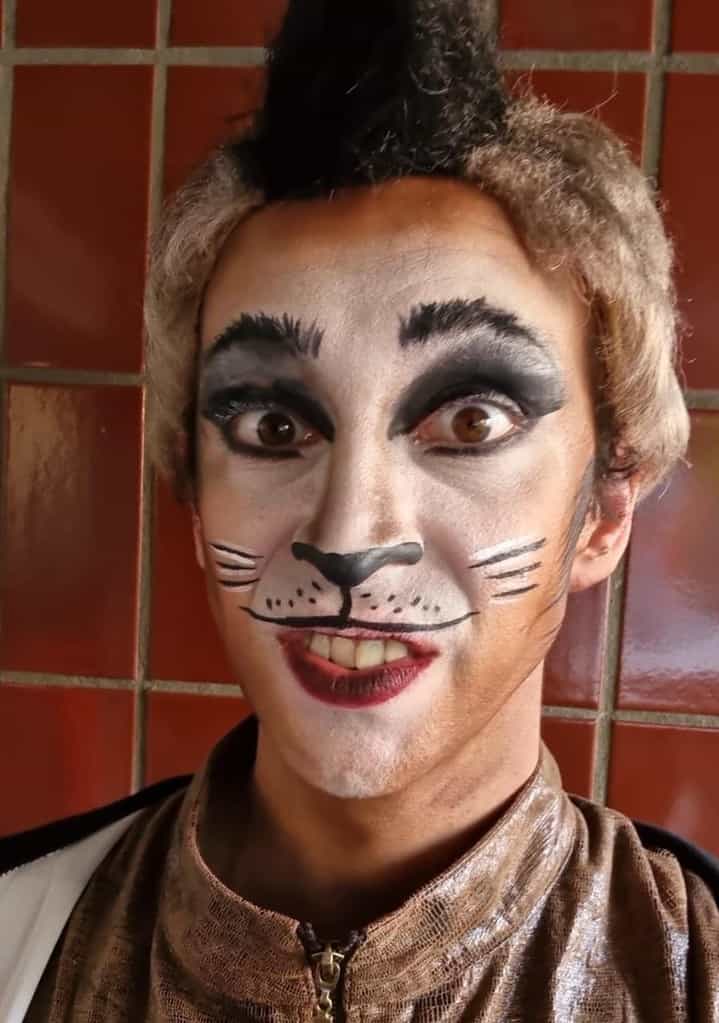How To Do Ballet Stage Makeup – The Perfect Guide
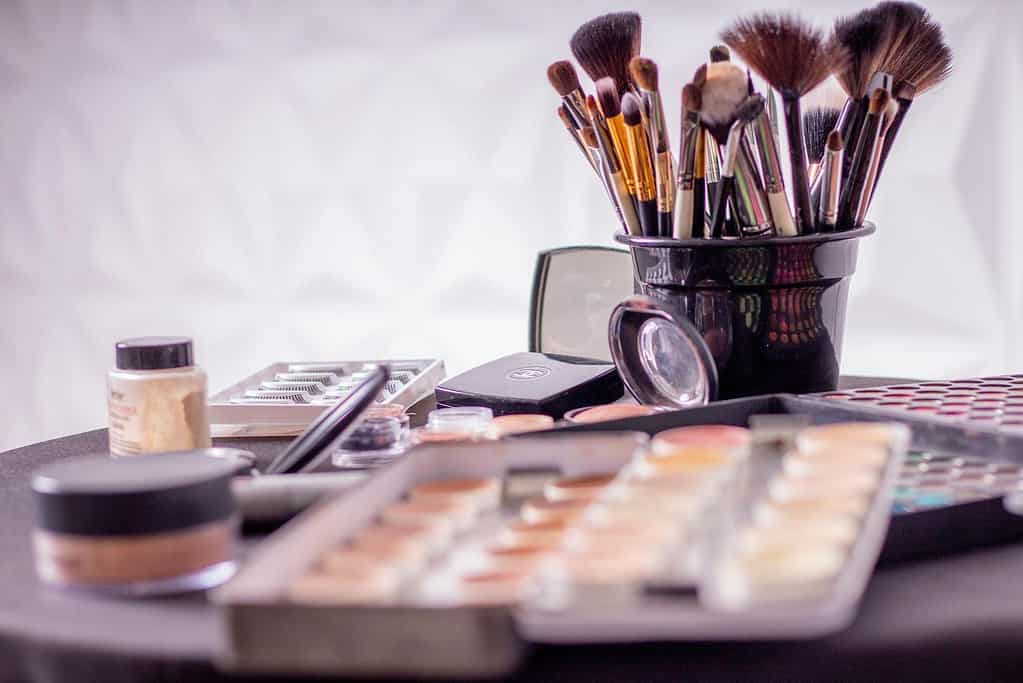
A crucial element in bringing a dancer’s character to life is stage makeup.
However, it’s not always our main focus, particularly when we’re busy rehearsing, and fine-tuning our technique.
But stage makeup plays an important role in finishing your final look, and helps the audience connect with your character.
In this blog post, I’ll help you perfect your ballet stage makeup, and steer you away from potential traps.
WHAT IS BALLET STAGE MAKEUP?
Ballet stage makeup is makeup worn by ballet dancers on stage to accentuate their facial features and expressions.
Enlightening stuff?
Think about it this way. Stage lighting can be intense, and can often leave you with a washed-out look.
The fix? Ballet stage makeup.
Ballet stage makeup is designed to be more visible from a distance, and helps to accentuate and define facial features (your eyes, mouth, and cheeks).
This helps the audience connect with the expressive emotions portrayed by ballet dancers.
But wait, there’s more.
Ballet stage makeup is specifically created for longevity and resilience, and is capable of withstanding the heat, sweat, and dynamic movements of dance without smudging or fading with time.
Aside from its practical benefits, stage makeup also gives dancers that extra confidence boost.
It did for me anyway.
KEY AREAS TO FOCUS ON
The application of ballet stage makeup is not a uniform process.
It varies from one performance to another and from dancer to dancer.
You need to consider factors like:
COMPETING WITH STAGE LIGHTING
A dance performance is not complete without stage lighting.
However, the intensity of stage lighting can often overshadow natural features, creating a challenge for the audience to perceive a dancer’s expressions and characteristics.
Unlike everyday makeup, stage makeup is more vibrant and intense.
It ensures that your facial features remain visible under bright stage lights and the distance between the stage and the audience.
For example, your foundation or base will often be several shades darker than your natural skin tone and will have a much thicker consistency compared to your everyday concealer.
YOUR EYES ARE UNIQUE
When applying stage makeup, it’s crucial to be aware of your specific eye type.
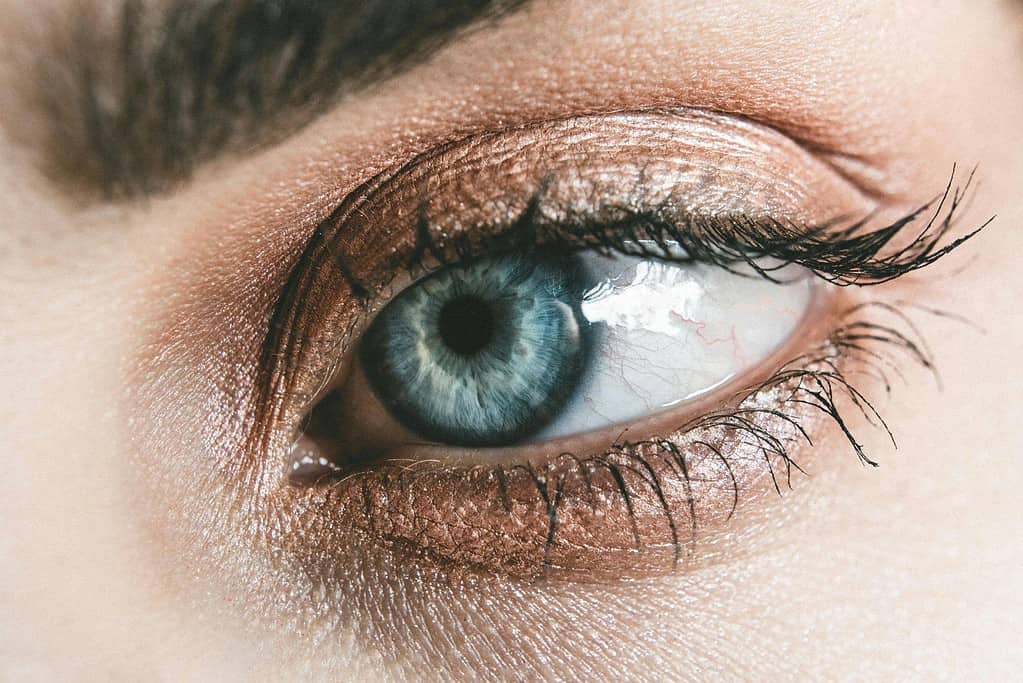
The goal is to accentuate your eyes, creating the illusion of them being bigger and more open.
For example, the positioning of your eyeliner, both above and below your lash line, will vary depending on your eye shape.
The same principle applies to eyeshadow. Depending on your eye shape, you may decide to extend it up to the brow line or choose not to.
CONTOURS ARE IMPORTANT
Contours play a vital role on the stage. If you neglect to contour your facial features, your face may appear flat, which is not ideal.
Therefore, it’s important to properly highlight your cheeks, neckline, and even your nose when applying stage makeup.
Contouring is also a powerful tool for creating illusions, particularly when portraying much older characters (ie. you’re in your 20s and you need to look like you’re 70) or exploring more abstract characters.
SIMPLE BUT ELEGANT STEP-BY-STEP GUIDE
Applying stage makeup doesn’t have to be difficult.
Here’s a really simple guide to prepare your face and help you apply a really elegant look.
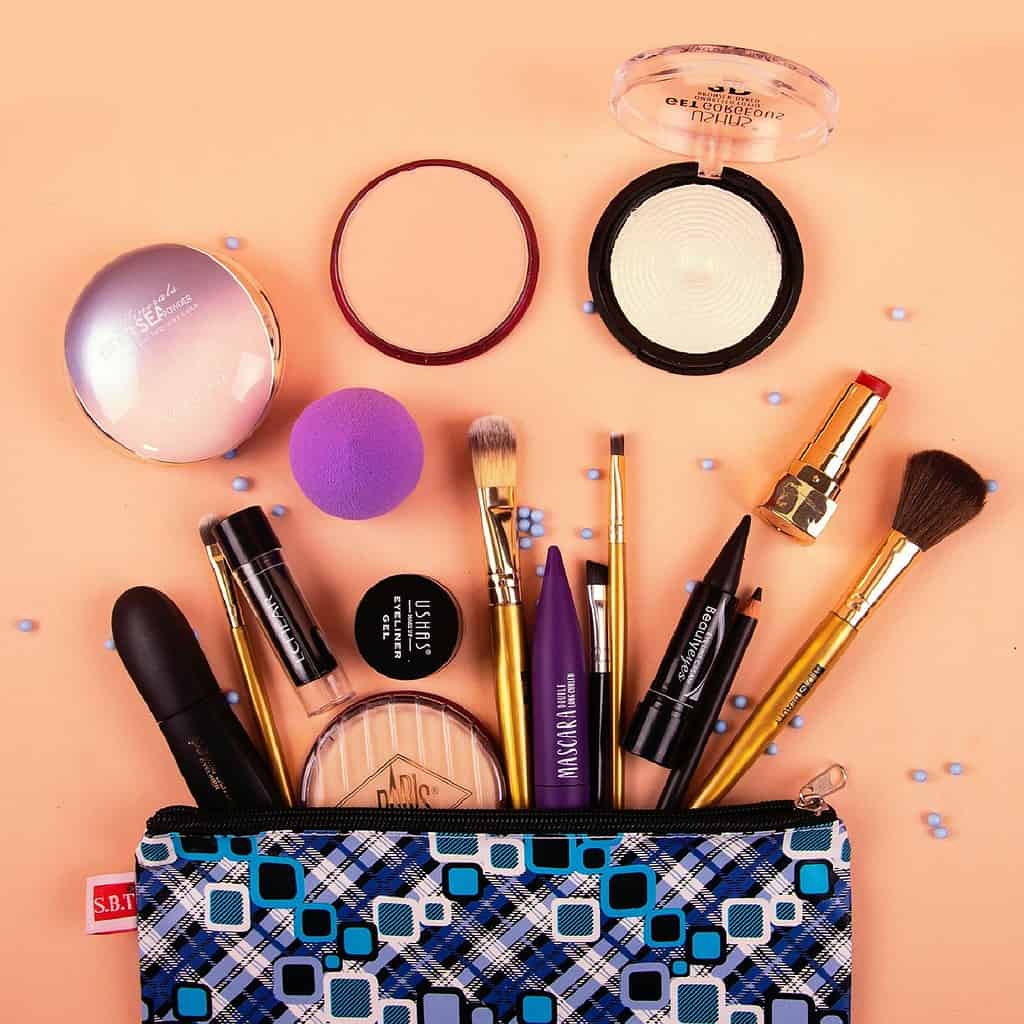
STEP 1 – PREPARE YOUR CANVAS
Similar to painters, it’s best to begin with a blank canvas.
Time to clean your face, remove any existing makeup and get your makeup tools (ie. brushes and products) ready.
STEP 2 – APPLY YOUR BASE
To apply stage makeup foundation, use a foundation that is one shade darker than your natural skin tone.
Apply it evenly using a makeup sponge, brush, or even your fingertips.
For a seamless look, blend it well, especially along the jawline and hairline.
STEP 3 – WORK ON YOUR EYES
Choose eyeshadow colours that complement your costume and the overall stage look.
Start with a neutral or light eyeshadow colour as a base across your eyelids.
Then use a slightly darker shade to define the crease of your eyelids. Make sure to blend it well for a seamless transition.
Apply a darker colour to the outer corners of your eyes to add depth.
Then, use a lighter shade to highlight the brow bone for a lifted effect. Again, blend well to avoid harsh lines and achieve an elegant look.
Apply eyeliner and mascara to enhance your eyes.
This process will be unique for every dancer, with the positioning of the eyeliner and the creation of a winged look varying based on your eye shape.
If you’re not overwhelmed at this point, awesome job. You’re ready for the next step!
STEP 4 – DON’T FORGET YOUR BROWS
Use an eyebrow pencil to define your eyebrows and fill in any unwanted gaps.
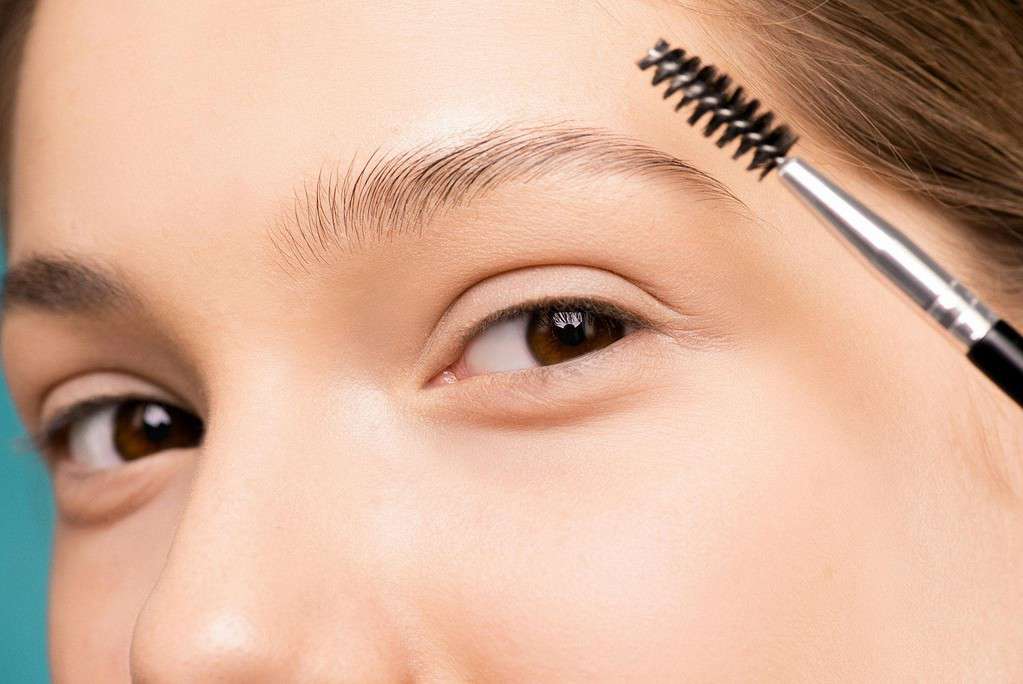
By smoothing the pencil strokes with an eye brush you can achieve a seamless brow.
STEP 5 – HIGHLIGHT THOSE CHEEKS
Select a blush shade that complements your skin tone and the overall makeup look.
Next, it’s time to SMILE.
Smiling is the best way to identify the apples of your cheeks.
Using a blush brush, apply the blush to the apples in a circular or upward motion.
Blend the blush gently towards your temples for a natural finish and avoid harsh lines by blending thoroughly.
Don’t be afraid to apply slightly more blush than you would for everyday makeup as stage lights will diminish this.
STEP 6 – LIPS
Begin by outlining your lips with a lip liner that matches your lipstick or is one shade darker for definition.
Follow the natural contour of your lips, and then apply your lipstick, either directly or with a lip brush for more precision.
Blot your lips with a tissue to remove excess product and unwanted lipstick on your teeth.
It’s a good idea to choose a lipstick that is matte rather than glossy, as this often has better staying power under stage lighting.
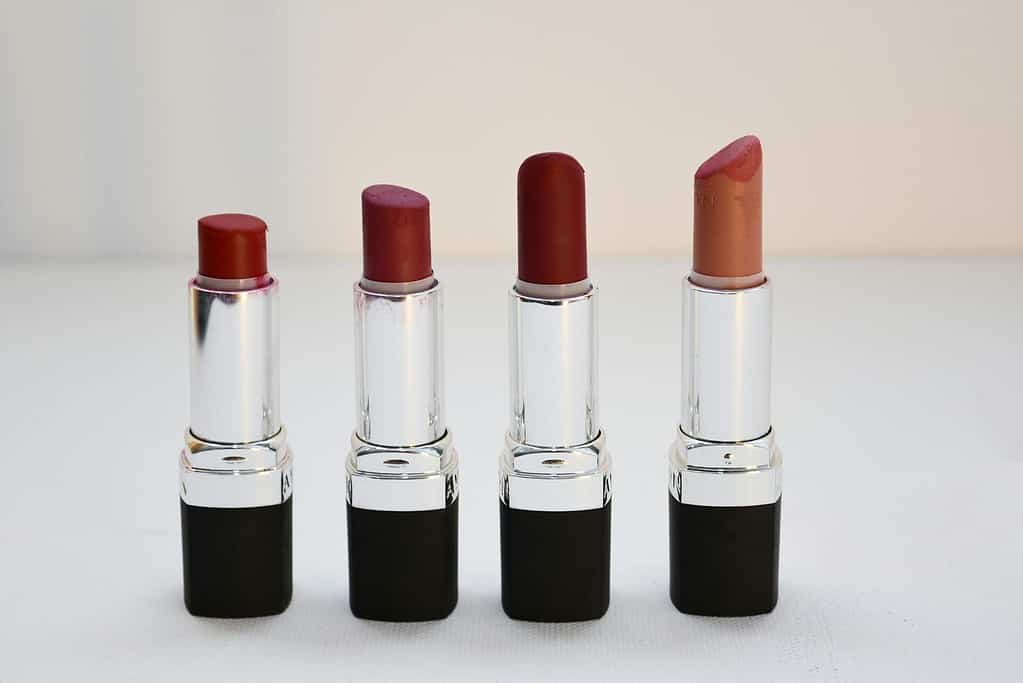
STEP 7 – FINISH WITH A POWDER
Don’t forget to finish with a setting powder or a translucent powder to help set your makeup and reduce any unwanted shine under stage lights.
That’s it, seven simple steps!
HOW TO FIX COMMON BALLET STAGE MAKEUP ERRORS
NOT GOING DARK ENOUGH
Not going dark enough with your stage makeup can result in facial features being lost under stage lights.
I recommend using deeper shades that enhance visibility on stage and experimenting with bold eyeliners and eyeshadows to accentuate your eyes and face.
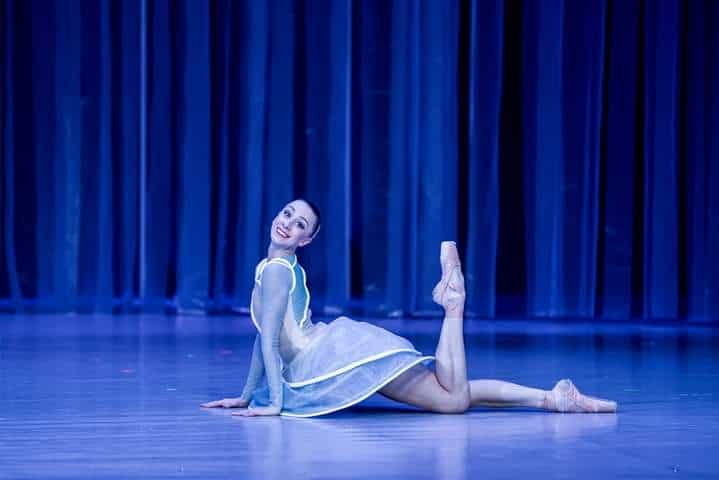
In this picture, my stage makeup lacked sufficient depth, making me appear excessively pale under the intense blue stage lighting, and the use of red lipstick resulted in my lips appearing purple.
To fix this, I adjusted my foundation to a shade that was two tones darker and changed to a more neutral (pink/brown) shade of lipstick.
NOT USING WATERPROOF PRODUCTS
Regular makeup may not withstand the rigours of a dance performance.
Unfortunately, this can lead to smudging or fading, and makeup running down your face.
Trust me, not a great look on stage!
I recommend investing in waterproof or water-resistant makeup products to ensure your makeup stays intact, especially if you tend to sweat during the performance.
LESS IS MORE
Sometimes less is more.
The less is more principle is a good one to remember when you apply your stage makeup.
Over-application can lead to a heavy, unnatural, and even harsh look.
I recommend focusing on precision.
Emphasise your key features like your eyes and lips, avoid excessive layers, and blend seamlessly.
MY BALLET STAGE MAKEUP ROUTINE
Each dancer has their own approach to applying stage makeup, and for me, being organised was essential.
This meant, checking that I had everything I needed in my dance makeup bag.
Before a performance warm-up class, I would begin with the base, add blush, and start my eye makeup with basic eyeshadow.
Post-class, I would complete my eye look by applying eyeliner and mascara, enhancing contouring, tidying up the brows, and concluding with the lips.
This routine provided me with ample time to achieve my desired look and allowed for additional practice on stage before the performance began.
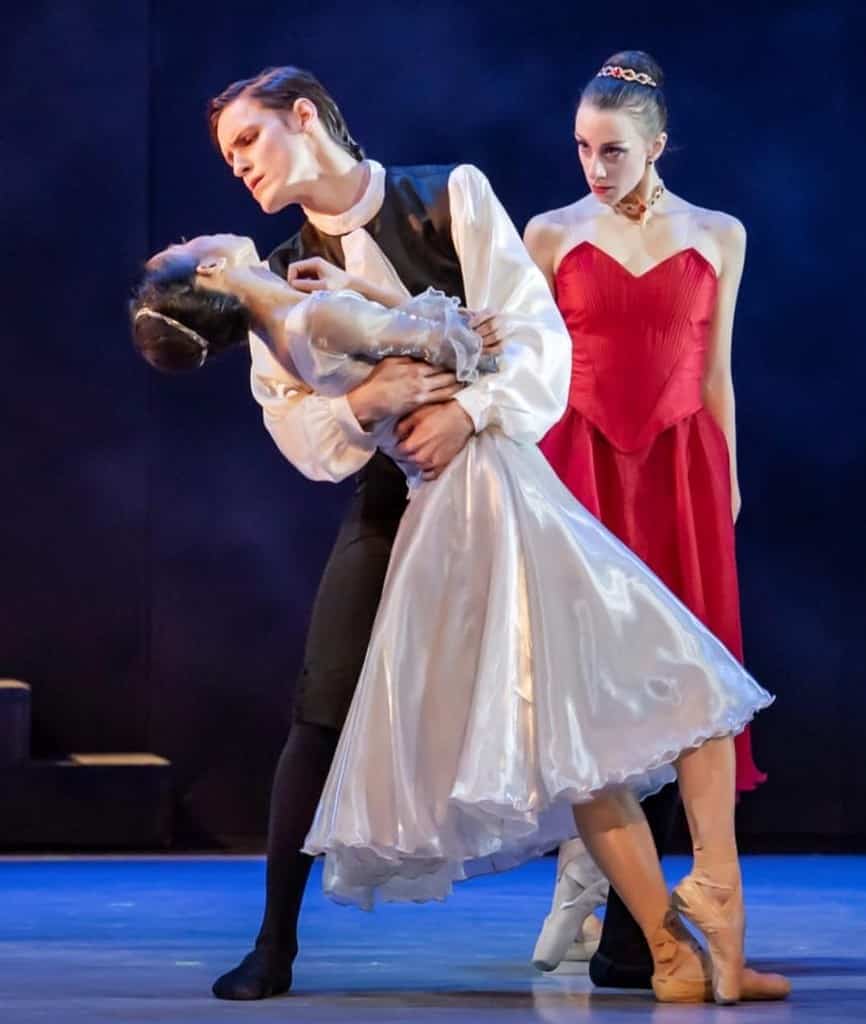
BALLET STAGE MAKEUP FOR MALE DANCERS
Like female dancers, male dancers also apply ballet stage makeup in order to accentuate their facial features and stand out under the harsh stage lights.
Although stage makeup is usually kept relatively simple for men, the contouring can vary depending on the character’s role.
Male dancers should use a base, eye shadow, eyeliner, and perhaps a neutral color on their lips to make their features appear bigger, brighter, and more pronounced on stage.
It’s important that male dancers shine just as much as female dancers, ensuring their expressions are visible, even from the last row in the theatre!
MY TOP THREE BALLET STAGE MAKEUP PRODUCT PICKS
KRYOLAN TV PAINT STICK
Kryolan TV Paint Stick is hands down, the best foundation (in stick form) with full coverage and a matte finish that is extremely durable and ideal under any stage conditions.
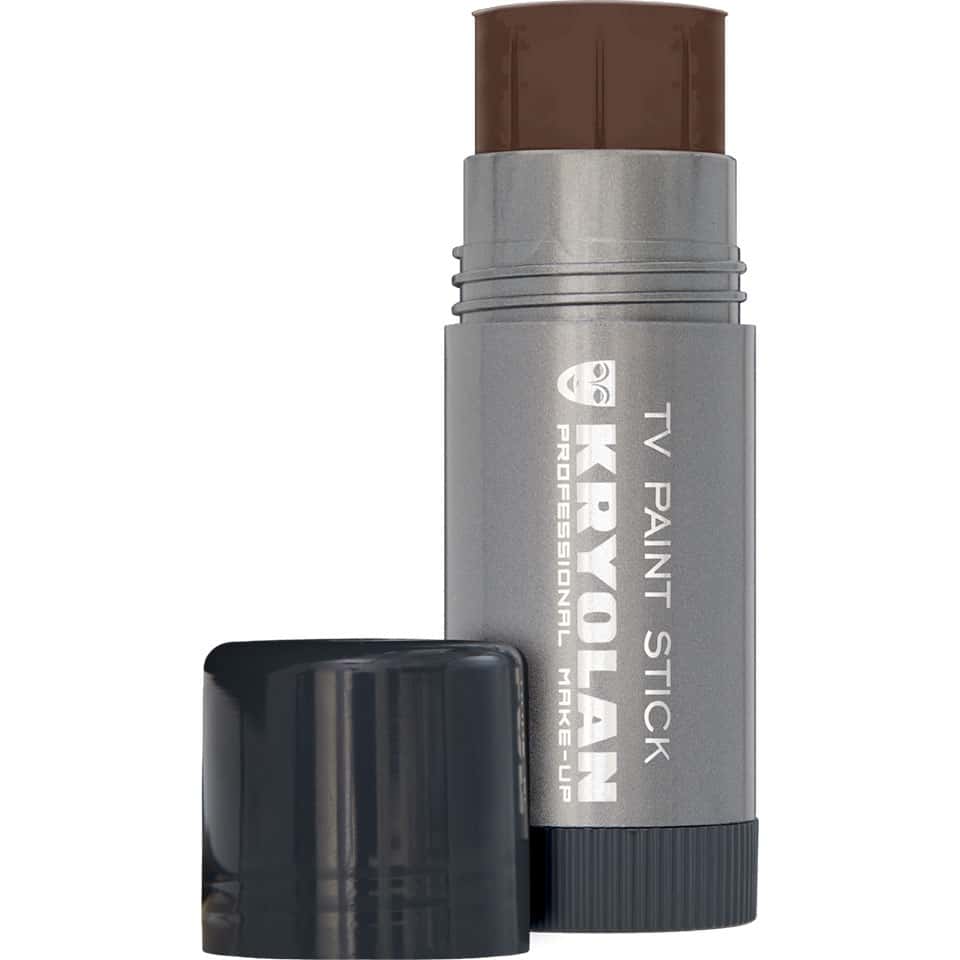
MAYBELLINE LASH SENSATIONAL VOLUMIZING AND THICKENING WATERPROOF MASCARA
If false eyelashes aren’t your thing, Maybelline’s Lash Sensational Waterproof Mascara provides both length and volume without any fallout and smudging.
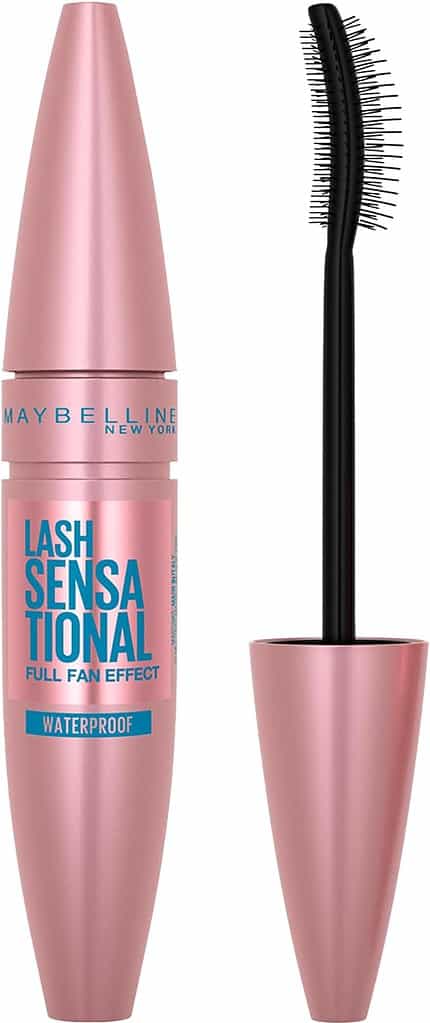
(Maybelline Mascara)
MAC RETRO MATTE LIPSTICK (RUBY WOO)
If you’re after a long-wearing lipstick with intense colour and a completely matte finish, look no further. Try the Max Retro Matte Lipstick Ruby Woo.
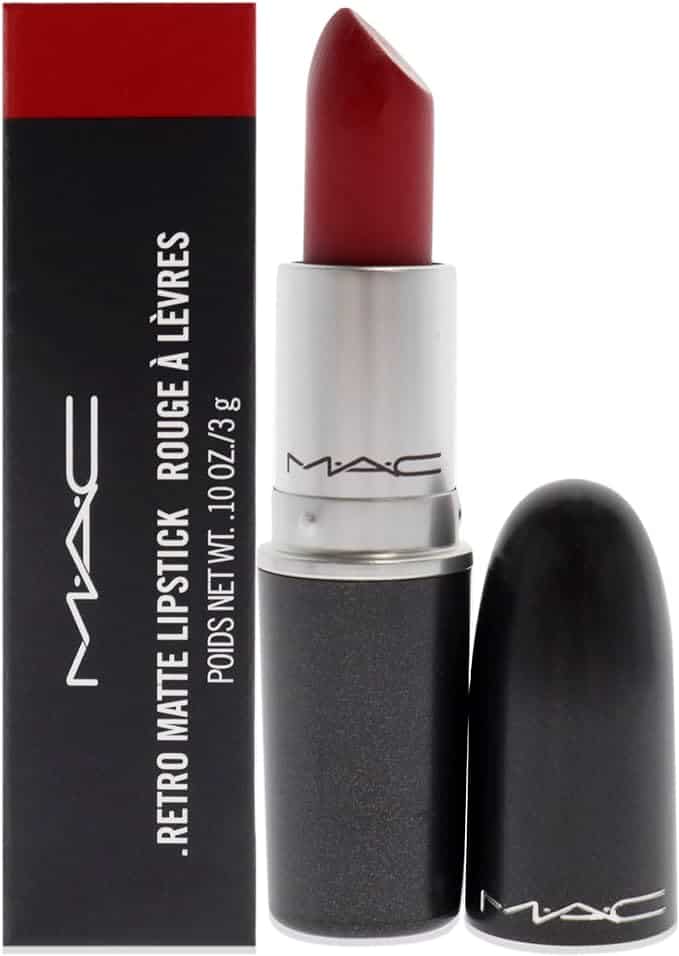
(Ruby Woo)
WRAP UP
Applying stage makeup is an art that requires practise and personalisation.
My best advice is to observe your facial features, understand what needs highlighting, and how to enhance your expressions.
Tailor your makeup to widen your eyes and emphasise your beautiful facial features.
Just like you wouldn’t perform in a $5 pair of pointe shoes, invest in quality products that enhance your appearance and withstand stage conditions, especially lighting.
Remember your stage makeup is a tool to convey your character effectively, so embrace the adaptability it offers.
